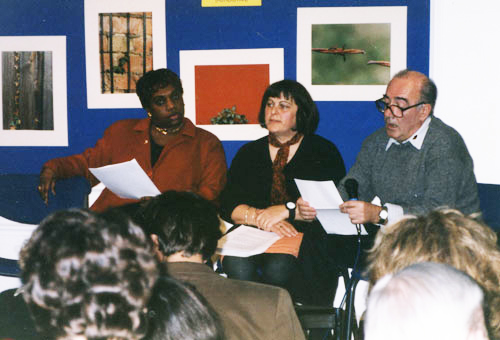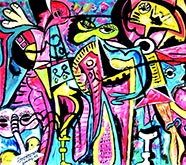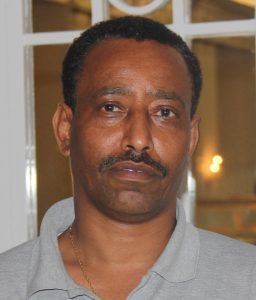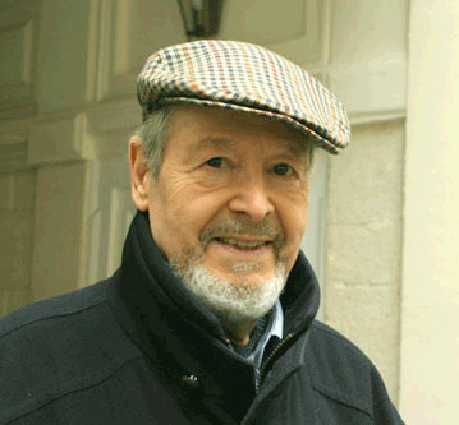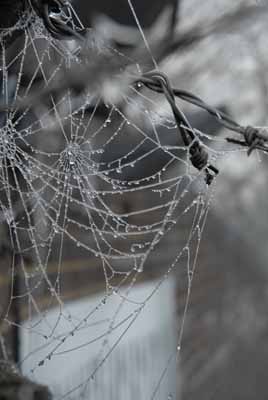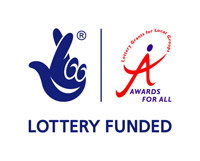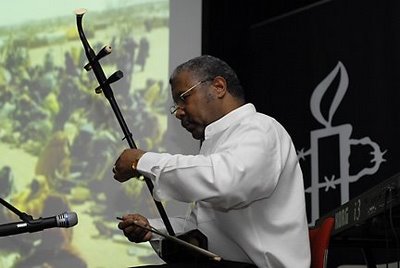Seminars
23 November @ 18:00 – 20:00 GMT
Free
Writers in exile from repressive regimes and war-torn situations often have extraordinary lived experiences, whether of conflict, cultural alienation, or associated trauma. Yet it is by virtue of their difference to ‘ordinary life’ that their stories might seem difficult to relate to for an English audience.
How can exiled writers powerfully convey their experiences in writing? How can they make themselves heard and understood? How can they pitch their ideas to publishers?
Elena Croitoru will chair this industry insider with poet and journalist Hussam Eddin Baramo, bilingual poet Leo Boix and Afghan writer and scholar Parwana Fayyaz.
This event is presented by Exiled Writers Ink.
Programme
6pm – Arrivals
6.30pm – Welcome and introductions – Dr Jennifer Langer, Founding Director, Exiled Writers Ink
Industry Insider panel discussion with Elena Croitoru (chair), Hussam Eddin Baramo, Leo Boix and Parwana Fayyaz
7.30pm – Light refreshments
8pm – Close
The Line-up
Hussam Eddin Baramo
Hussam Eddin Baramo is a poet and journalist who was born in Syria and whose poetry collection in English is Grave Seas (Palewell, 2021). He co-founded a publishing company Al-Wa’l in Damascus and having endured the repression that crushed Syria and the clandestine leftist party to which he belonged, he fled to Cyprus and in 1994 moved to London. When the Syrian uprising began in 2011, he was part of the creation of the Syrian Writers Association, and served as vice-president and editor-in-chief of Awraq, its cultural publication (2012-2019). Hussam’s previous publications include a poetry book Poisoned Kohl (2012) and short stories. He translated Introduction to Slavoj Zizek and Post Orientalism, by Hamid Dabashi (2013). He currently works as managing editor of Al-Quds Al-Arabi newspaper. He is a columnist and political analyst and has been a speaker at universities, conferences, TV programmes and seminars as well as a contributor to debates.
Leo Boix
Leo Boix is a bilingual Latinx poet born in Argentina who lives and works in the UK. His debut English collection Ballad of a Happy Immigrant (Chatto & Windus, 2021) was awarded the Poetry Book Society Wild Card Choice. He was awarded the Bart Wolffe Poetry Prize, the Keats-Shelley Prize, a PEN Award, The Society of Authors’ Foundation and K. Blundell Trust. Boix was highly commended in the Stephen Spender Prize and The Charles Causley International Poetry Competition, as well as been twice long-listed for the National Poetry Competition, run by the Poetry Society.
Elena Croitoru (Chair)
Elena Croitoru is a British-Romanian writer and she has an MSt in Creative Writing from the University of Cambridge. She won the Charles Causley Poetry Prize, the South Bank Poetry Prize and was a finalist for prizes such as the Michael Marks Greek Bicentennial Poetry Pamphlet Prize, Bridport Prize, Novel Fair Ireland & dozens of other awards. Her first poetry pamphlet, The Country With No Playgrounds, won the Live Canon Pamphlet Prize and was published in 2021. Her first novel was shortlisted for the Wilbur Smith Prize – Best Unpublished Novel.
Parwana Fayyaz
Parwana Fayyaz is an Afghan writer and a scholar of medieval Persian poetry. Her debut poetry collection, Forty Names, was published in 2021 by Carcanet Press, and it was named A New Statesman Book of the Year and A White Review Book of the Year. She won the 2019 Forward Prize for Best Single Poem. Born in Kabul, she was raised in Pakistan. After finishing high school in Kabul, she enrolled in an English language immersion program and subsequently began her undergraduate studies in Chittagong, Bangladesh. She transferred to Stanford University and earned both her B.A. in 2015, with a major in Comparative Literature (with Honors) and a minor in Creative Writing (Poetry), and an M.A. in Religious Studies in 2016. She then moved to Cambridge University to pursue a PhD in Persian Studies at Trinity College and took up a Research Fellowship as the Carmen Blacker Fellow at Peterhouse, Cambridge University in October 2020.
Arts in Dark Times: Endangered in Afghanistan
Kabul wall mural: ArtLords
Saturday 13th November 2021 from 2 to 5.30 pm
Khalili Lecture Theatre, SOAS University of London
Thornhaugh Street, Russell Square, London WC1H 0XG
(nearest tube: Russell Square)
Writers and other artists in Afghanistan face imminent danger under the renewed Taliban regime. This symposium will focus on the state of Afghan arts, particularly writers and literature, under the two Taliban regimes and the period in between. Beyond simplistic generalisations presented by the media, lie multiple narratives of resistance that will be explored in this symposium.
It aims not only to provide a platform for diverse voices, and to increase knowledge and awareness, but also to generate activism.
– Registration and Refreshments – 2.00 to 2.20
– 2.20 to 2.30 –
Welcome and Introduction:
Dr James Caron and Dr Jennifer Langer
– 2.30 to 3.30 – panel 1 –
The Extent of the flourishing of the Arts in Afghanistan during the 20 years
Round Table discussion.
Moderator: Dr James Caron
Reza Mohammadi, Abdul Sulamal and Suhrab Sirat
Audience Question and Answer
POETRY READING BY SUHRAB SIRAT & AVIVA DAUTCH
Martin Bright: Free Speech and Free Expression
– 3.30 to 4.50 – panel 2 –
The Arts Resisting and the Taliban Takeover
Chair: Rouhi Shafii
Dr Zuzanna Olszewska: ‘The Social Media Poetry of the Fall of Kabul’.
Karim Haidari: Journalists and Journalism
Milad Yousofi: Music and musicians
Audience Question and Answer
MILAD YOUSOFI PLAYS THE RUBAB
POETRY READING BY REZA MOHAMMADI
– 4.50 to 5.30 – Panel 3 –
Activism
Chair: Lester Gómez Medina
Reza Mohammadi
Rabia Nasimi
Audience Question and Answer session
Biographies
Martin Bright is an award-winning journalist with over 30 years of experience. He has worked for the Guardian, the Observer and the New Statesman among others. He is currently acting editor of the freedom of expression magazine Index on Censorship. In 2003 he broke the story of Iraq War whistleblower Katharine Gun, which was recently made into the movie Official Secrets. In 2009 he set up the employment charity Creative Society as a response to the Great Recession.
James Caron is Lecturer in Islamicate South Asia, in the School of History, Religions, and Philosophies at SOAS. He is a literary and cultural historian specializing in the history and sociology of knowledge in Pashto.
Poet and academic Aviva Dautch is the resident expert on BBC Radio 4’s ‘On Form’, a series exploring the recent resurgence in formal poetry and in Summer 2021 was the British Museum’s poet in residence for Refugee Week. She is a mentor for Exiled Writers Ink and her co-translation of The Eighth Crossing, a book-length poem about his refugee journey from Afghanistan to the UK by Suhrab Sirat, was published in 2021.
Karim Haidari was born in Afghanistan and came to the UK in 1999. He has an MA in Creative Writing from City University and writes poetry, short stories, plays, scripts and radio plays. Excerpts have been published and performed in the UK and Afghanistan. He recently worked as a journalist for the BBC in Afghanistan and his report was featured in ‘From Our Own Correspondent’ and selected for ‘Pick of the Week’.
Jennifer Langer is founding director of Exiled Writers Ink. Her debut poetry collection is The Search (Victorina Press) and she has edited five anthologies of exile literature. She holds a PhD in literature by exiled Iranian Jewish women and is a SOAS Research Associate.
Lester Gómez Medina was born in Nicaragua, raised in Costa Rica and settled in London in 2014. In 2021, he completed his first pamphlet, The Riddle of The Cashew, published by Exiled Writers Ink.
Reza Mohammadi was born in 1979 in the south of Afghanistan and has published six poetry collections.
Rabia Nasimi arrived in the UK at the age of five with her family, fleeing the Taliban regime in Afghanistan. She is a Cambridge and LSE graduate who studied Sociology with a focus on Afghanistan. Rabia has worked in the third sector for many years supporting refugees, but is now working as a Civil Servant.
Zuzanna Olszewska is Associate Professor in the Social Anthropology of the Middle East at the University of Oxford, working on the poetry and digital cultural production of Afghanistan and the Afghan diaspora. She is the author of numerous articles, poetry translations from Persian, and a book, The Pearl of Dari: Poetry and Personhood among Young Afghans in Iran (Indiana University Press, 2015).
Rouhi Shafii is a Social Scientist, writer and translator of Persian poetry. Rouhi has published eight books in Persian and English. Her memoir in Farsi is due to be published shortly. For more information: www.rouhi-shafii.com
Abdul Wakil Sulamal Shinwari lives in Britain and has to his credit seven books of short stories in Pashto. These have been translated into English, Urdu, Dari, Hindi and Slovak, and published in the U.S., Slovakia, India and Pakistan. Several have been published in anthologies. He has written a number of published academic, research and analytical articles as well as political and literary essays.
Suhrab Sirat is a poet, writer and journalist who works for the BBC World Service. Born in 1990, in the Balkh Province of Afghanistan, Suhrab came to the UK as a political refugee in 2014. Three collections of his poems were published in Afghanistan and one in English in the UK: The Eighth Crossing (Exiled Writers Ink). He has also written lyrics for several Afghan singers, including the first Afghan female rapper.
Milad Yousofi is a London based rubab player, composer and music producer working in contemporary Afghan folk, world-jazz and fusion music. He has performed at The Houses of Parliament, The White House, British Museum, V & A, Royal Festival Hall and at exclusive gatherings for The Royal Family, Heads of State and Government, Ambassadors and other dignitaries. He has composed for BBC programmes as well as for a number of films and theatre productions.
Exiled Writers Ink and SOAS University of London
Centre for Cultural, Literary and Postcolonial Studies (CCLPS)
One day Symposium Saturday 1st April 2017
The Danger of Words in the Age of Danger
image: Ze Tubia
Saturday 1st April 2017
10.00 am – 6.15 pm
Khalili Lecture Theatre, SOAS University of London
Thornhaugh Street, Russell Square, London WC1H 0XG (nearest tube: Russell Square)
This one day symposium sets out to examine the contemporary danger of words as it affects exiled writers. It will interrogate diverse aspects of the ‘Danger of Words’ from denying exiled writers the freedom to write about the ills in their societies, to the manipulation of words, as it affects exiled writers, by dark and sinister forces in our established democracies.
Exiled writers and scholars, including those from Afghanistan to Uzbekistan, will examine the ramifications of the country of origin’s continuing censorship of exiled writers’ literary production post exile and of the silencing in the country of destination, in relation to the writers’ literary, aesthetic and ontological negotiation and resistance to it. Exiled literary voices will articulate their response to the implosion of liberalism in the country of origin and the crisis of liberalism in the countries of destination throughout Europe with the rise of the xenophobic right, and of the US right. In a further session on the danger of words, Jewish and Muslim poets will express their own nuanced and varied personal subjectivities and narratives resisting the simplistic and dangerous identities imposed on them.
The symposium will conclude with an exiled writers’ poetry recital.
Symposium
– 10.00 to 10.15 – Welcome and Introduction: Dr Sara Marzagora and Dr Jennifer Langer
– 10.15 to 11.30 – panel 1 –
Literary Voices and the Implosion of Liberalism in the Country of Origin, chair: Dr Nadia Faydh.
Edin Suljic: Terra Incognita
Bejan Matur: Sea of Faith
Suhrab Sirat: Voices of Young Afghan Poets post 9.11.
– 11.30 to 1.00 – panel 2 –
Forbidden: Censorship Across Borders, chair: Dr Abol Froushan
Hamid Ismailov
Ali Abdolrezaei
Alemu Tabeje Ayele
– 1.00 to 1.45 – lunch break
– 1.45 to 3.15 – Round Table – The Danger of Words in the Country of Destination:
On The Frontline: Jewish and Muslim writers’ self representation – discussant/chair: Dr Jennifer Langer
Dr George Szirtes
Sabrina Mahfouz
Dr Aviva Dautch
Reza Hiwa
– 3.15 to 3.45 – tea and coffee
– 3.45 to 5.20 – Panel 3
The Danger of Words in the Country of Destination, chair: Abbas Faiz
Leonardo Boix: Poetry and Journalism in parallel: A Latin American perspective
Annie Holmes and Dr Olumide Popoola: To find a Story and Not to Tell it.
Annie Webster: Stick to Your Story to Save Your Life: The Dangers of Storytelling in Exile
– 5.20 to 6.15 –
Poetry Recital by exiled poets on the ‘Danger of Words in the Age of Danger’
Alemu Tabeje Ayele
Barbara L. Lopez Cardona
George Szirtes
Book Table – books for sale by the writers
£12 for non-Exiled Writers Ink members; £8 for EWI members; students free with ID, to include tea and coffee.
1) Pay at the door (2) via Eventbrite
https://www.eventbrite.com/e/the-danger-of-words-in-the-age-of-danger-symposium-tickets-32894648780
ALL WELCOME
Information: jennifer@exiledwriters.fsnet.co.uk www.exiledwriters.co.uk and www.soas.ac.uk/cclps
Redbridge Central Library
Saturday 29th October 2016, 3 pm to 5 pm.
Away from Africa
with Exiled African poets and music
The African past may be nostalgic or disturbing and the London present may be a present of freedom or alienation.
Alemu Tebeje Ayele (Ethiopia) with co-translator poet, Chris Beckett
Alemu Tebeje Ayele is an Ethiopian exile journalist, teacher, poet, community activist and website campaigner based in London. He studied Ethiopian Languages and Literature, and Journalism at the universities of Addis Ababa and Wales respectively. He is also awarded Diploma in Education and Training at the University of Westminster. His poems have been published in two anthologies ‘’Forever Spoken’’ and ‘’No Serenity Here’’, and other online and print literary magazines including the Modern Poetry In Translation and The Missing Slate. He co-admins a website, www.debteraw.com, named after one of the Ethiopian literary giants, Tsegaye Gebre Medhin Lucha (a.k.a. Debteraw). Debteraw is a founding member of the EPRP, former leader of the Ethiopian Student Movement, poet and Amharic language expert. Debteraw was fell in the hands of the current regime in June 1991 and killed later on.
Freddy Macha (Tanzania)
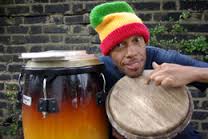
Freddy Macha is a writer and musician. Kilimanjaro born Tanzanian multi-instrumentalist musician Freddy Macha, has been writing in the East African media for many decades. He is a recipient of BBC Poetry Prize, 1981 and Commonwealth short story runners up award, in 1996. He lives in London playing his music and writing daily.
Hamdi Khalif (Somalia)
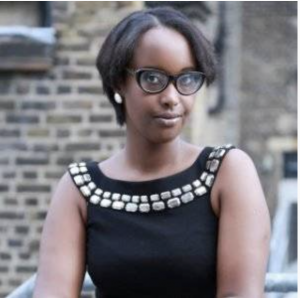
Hamdi Khalif is a poet originally from Somalia. While new on the poetry scene, she recently joined the Bards Without Borders collective, London poets from migrant and refugee backgrounds who are creating a response to Shakespeare to mark the 400th anniversary of his death. Hamdi’s poems are a fusion of both English and Somali, not only in terms of language but also in ideas and identity, covering a range of themes from loss to womanhood.
Takudzwa Mukiwa (mbira musician, Zimbabwe)
Taku is an mbira musician from Zimbabwe whose music draws on the traditional Shona repertoire with added modern lyrics that run commentary to some of the issues affecting Zimbabweans both at home and abroad. He started playing mbira after high school and was taught by the Kwanongoma instrument maker Tendai Machinga and the late Samson Zivanashe, (or Jongwe as he was affectionately known), a respected player in the Bulawayo mbira circles who was a favourite for many people conducting biras. His playing history includes playing with musicians such as Anna Mudeka, Harare frontman Kudaushe Matimba and mbira maestro Chartwell Dutiro. He has recorded with Grassroots Theatre Company and provided backing vocals on some tracks on Chartwell Dutiro’s album Dendere Ngoma for which he also played mbira for the track Tatenda. With a background in theatre, Taku has played mbira in numerous theatre performances. He runs the popular mbira blog Zvembira.com.
On Thursday, 9 August 2012
At Notre Dame University, London
1-4 Suffolk Street, SW1 4HG
Hospitality Poetica
Is it possible for a global gathering such as the London Olympics 2012 to provide an arena through which national and international hospitality can be approached and mirrored on an aesthetic level? The Olympics may offer an opportunity to rethink what does it mean hospitality today, not only as a question of politics, economics and law, but also on a human level, as a form of involvement and participation that poetry, literature and art could be able to re-imagine. For this reason, we would like to invite artists, students, and anyone who might be interested to a day symposium where literature could become a space able to host a multiplicity of thoughts and ways of being hospitable. Jacques Derrida indicated the paradox of a true, inconditional hospitality that would correspond to the“impossible”, and hence to the transgression of conditioning laws and politics of hospitality. Yet poetic expression could present perceptive modes able to renegotiate the limits of hospitality and to rediscover its social and historical reality. Indeed, a discourse on hospitality could begin with a receptive gesture: the act of listening to other stories, other voices, and meeting people as a way of finding common structures of feeling and experience.
This one-day event, supported by Exiled Writers Ink and to be held at the University of Notre Dame in London, would like to invite readings and conversations on the poetic of hospitality. We would like to emphasise the dialogic purpose of this event, which does not seek to affirm or defend positions but rather to encourage different ways of talking about hospitality through reflection and creative writing. This symposium will offer the opportunity to share a
conversation on hospitality that could have an impact on public discourses and reassess the value of poetry and literature in the construction of hospitable societies.
We welcome proposals for poetry and prose readings (10-15 min.) or joint papers or conversations (20-30 min.), which might be related to the idea of a poetic of hospitality. We gladly accept writings based on sayings or interpretations of proverbs that celebrate hospitality (5-10 min.). Also, we will be happy to consider forms of performance art, audio-visual installation and any other means of artistic expression. This free event is open to all.
The deadline to register and send proposals is 27th July 2012.
For submissions and other queries please contact the organisers:
Alia’ Kawalit and Filippo Menozzi: poetryhospitality@gmail.com
Programme
9 August 2012
University of Notre Dame, London
PROGRAMME
10:30 Welcome:
Jennifer Langer, Alia’ Kawalit, Filippo Menozzi
MORNING CONVERSATION: Is the Poem a Visitor or a Host?
11:00 Raficq Abdulla (Prose/Essay)
11:30 Imtiaz Dharkar (Poetry)
11:45 Caroline Rooney (Poetry)
12:00 Selma Dabbagh (Novel)
12:20 Fathieh Saudi (Poetry)
12:35 Esther Lipton (Poetry)
Questions
LUNCH
AFTERNOON CONVERSATION (I): The Guest and the Gift
13:45 Laila Sumpton (Poetry)
14:05 Lara Popovic (Prose/Proverbs)
14:20 Muhamad Tawfiq Ali (Translation)
14:35 Aydin Mehmet Ali (Poetry/Prose)
14:55 Sofia Buchuck (Music)
Questions
AFTERNOON CONVERSATION (II): Being Hospitable: Conditions and Possibilities
15:30 Stephanie Yorke (Poetry)
15:50 Declan Wiffen, Dara Blumenthal (Dialogue/Visual Presentations)
16:10 Nisha Obano (Poetry)
16:25 Charlotte Salmi, Vincent van Bever Donker, Nisha Manocha (Dialogue)
16:45 Questions and Closing Remarks
17:00 Happy Hour, continuing the conversation
The event is free but please register at: poetryhospitality.at. gmail.com
Sponsored by the Centre for Gender Studies SOAS, London University
Symposium of Short Documentaries made by Iranian Women.
Don’t Forget Women Victims of Violence, Iran
In the Middle of Nowhere, Farah Shilandari, Sweden
Don’t Bury My Heart, Saba Vasefi, Australia
The Killing of Shirin Alam Holi Saba Vasefi, Australia
The producers will be present and discussion and Q & A will follow after the screenings.
Date: Saturday 5 November 2011
Place: SOAS, Khalili Lecture Theatre, Thornhaugh Street, London WC1H 0XG (tube: Russell Square)
Time: 1-5 PM
Registration: £10/ Students £5
Please book your place in advance by email:
icavi@icavi.org
jennifer@exiledwriters.fsnet.co.uk
Film (57 minutes) and Lecture by Professor Debra Kelly
‘How to Live: One Question and Six or Seven Life Lessons with Albert Memmi’
It is thirty years since the film Pillar of Salt, based on the autobiographical novel by the great sociologist and writer Albert Memmi, captured the cultural richness and social complexity of a Jewish boy’s life in Tunis.
Harif, Spiro Ark and Exiled Writers Ink are proud to have put together this tribute to Albert Memmi The evening will feature a screening of the film and a talk by one of the foremost experts on his work, Professor Debra Kelly.
Debra Kelly is Professor of French and Francophone Literary and Cultural Studies in the Department of Modern and Applied Languages, University of Westminster, London.. Her major publications are Pierre Albert-Birot. A Poetics in Movement, A Poetics of Movement (1997) and Autobiography and Independence. Selfhood and Creativity in North African Postcolonial Writing in French (2005).
Lyn Julius and Jennifer Langer will read Memmi’s poetry in French and in translation. Poems translated by Jennifer Langer.
Tickets £8 from the Spiro Ark – 020 7723 9991 Fax 0207 723 8191 Education@spiroark.org
Spiro Ark Centre, 25 -26 Enford Street, W1 H 1DW
WRITING RESISTANCE: THE LITERATURE OF EXILE
THE VOICE OF EXILED WRITERS
Image: Maryam Ashrafi
Thursday 21st June 2007
The Human Rights Action Centre, 17-25 New Inn Yard, London EC2A 3EA
COFFEE – 9.45 to 10.00
WELCOME
10.00 to 11.00 – OPENING SESSION
Exiled Writers in a Conflicted World
How do exiled writers negotiate and mediate conflicted internal and external spaces?
Readings and discussion by the writers:
Moris Farhi
Gillian Slovo
Saadi Yusef
11.00 – 12.15
The Eye of the Exile: Writing in the Exilic Space
Martin Orwin – Three Contemporary Perspectives of Exile in Somali Poetry
Omar Garcia – (Re)structuring communities: The Cuban Nation in Exile
Marta Niccolai – Representation of Post-Colonialism by African Exiled Writers in Italy
Predrag Finci – On Returning
LUNCH 12.30 to 1.30
1.30 – 2.45
Exilic Identity and Language
Chair: Fathieh Saudi
Ana de Medeiros -The Impossibility of Return: Voice, Language and Exile in Assia Djebar’s work.
Yang Lian – The Poetics of Lonely Resistance
Jacob Akol – Burden of Nationality: Memoirs of an African Journalist, Writer and Aidworker
3.00 – 4.15
Women Without Shadows: Women’s voices
Fadia Faqir – Shahrazad Strip-Searched
Aydin Mehmet Ali – Breaking Taboos
Rouhi Shafii – Censorship and Iranian Women Writing in Exile
TEA (4.15 to 4.45)
ALSO HAPPENING DURING THE DAY
Workshops
11.00 to 12.30
Across the Divide of Individual and Collective Memory
Listen to a little poetry by Ziba Karbassi and Jennifer Langer, women with Muslim and Jewish backgrounds. Share their Box of Memories and bring your own. Create a collaborative Memory poem with a person from a different culture, country, language or background.
3.00 to 4.15
Voices of Passion!
Ney player Muniser Unver and poet Evlynn Sharp offer the words of Rumi and Ibn ‘Arabi with musical accompaniment.
Your imaginative response will be invited.
Be inspired by the beauty and universality of mystical poetry along with music of the Ney flute in this creative writing workshop.
THE CREATIVE SPACE (5 pm to 6.30)
Hosted by Richard McKane, poet and translator
Ziba Karbassi – Dance of Mourning and Poetry – Iran
Mir Mahfuz Ali – poet – Bangladesh
Hassan Bamyani – poetry and music – Afghanistan
Alfredo Cordal – performance poet – Chile
Others tba
BOOK TABLE
DRINKS
7 pm :
Evening event
Exiled Writers Ink in association with Amnesty International
Writing Pain and Resistance in Exile
Once in the UK, exiled writers are not free of the shackles of the conflict and oppression prevalent in their country but remain intimately connected with the struggles, expressing their anger and pain through their art. Frequently this art serves to empower the artist through the voice of resistance but is it effective in shifting consciousness in the country of origin?
Exiled writers from Palestine, Iraq, Zimbabwe and Uzbekistan will read from their work and then discuss the issues.
‘In Memory of Darfur’ is a new musical composition with multi-media by the Sudanese musician: Ahmed A. Rahman.
Writers:
See below for biographies
– Hamid Ismailov – Uzbekistan
– Ghada Karmi – Palestinian
– Fawzi Kerim – Iraq
– Hilton Mendelsohn – Zimbabwe
– Music and multi-media: Ahmed A. Rahman from Sudan
Expressions of Pain and Resistance in Exile
Hamid Ismailov
Ismailov’s novel, The Railway, originally written before he left Uzbekistan, was translated into English by Robert Chandler and was published in 2006. A Russian edition was published in Moscow in 1997. His forthcoming novel, will be entitled Comrade Islam and is about a poet in Uzbekistan who ends up in the Taliban’s ranks when the Americans bombarded Afghanistan. Born in 1954 in Kyrgyzstan, Ismailov is an Uzbek journalist and writer forced to flee Uzbekistan in 1992 when he came to the UK. He now works as head of Central Asia and Caucuses Service at the BBC World Service. His works are banned in Uzbekistan. He published numerous books in Uzbek, Russian, French, German, Turkish and other languages. Among them are collections of poetry: “Sad”(Garden)(1987), “Pustynya”(Desert) (1988), of visual poetry: “Post Faustum” (1990), “Kniga Otsutstvi ” (1992), novels “Sobranie Utonchyonnyh” (1988), “Le Vagabond Flamboyant” (1993), “Hay-ibn-Yakzan” (2001), “Hostage to Celestial Turks” (2003), “Doroga k smerti bol’she chem smert'”(The Road to Death is bigger than Death) (2005) and others. He translated Russian and Western classics into Uzbek, and Uzbek and Persian classics into Russian and some Western languages.
Fawzi Karim
is a poet born in Baghdad in 1945. In 1968 he graduated from the University of Baghdad and published his first poetry book Haith Tebda’ al-Ashia’a (Where Things Begin). He migrated to Beirut in 1969, where he published his second collection Arfa’au Ydi Ihtijajan (I Raise My Hand in Protest). He returned to Baghdad and published his third collection Junun min al-Hajar (Madness of Stone), and two books of non-fiction, one on exile and the other on the Iraqi author, Admon Sabri. In 1978, he migrated to London where he still lives. In exile, he published three more books of poetry. His Selected Poems was published in 1995 in Cairo. In 2000 his Complete Poetry was published in Damascus by Dar al-Mada. In addition to his regular writing for newspapers on classical music and on painting, he edits his own quarterly al-lahdha al-Shi’iria (Poetic Moment).
Ghada Karmi
Her memoir, is entitled In Search of Fatima: a Palestinian Story and her forthcoming book is Married to Another Man, Pluto, June 2007. She is a research fellow at the Institute of Arab and Islamic Studies at the University of Exeter, England. She was born in Jerusalem, but left with her family in 1948. She was brought up in Britain, and gained a doctorate in the history of Arabic medicine from London University.
Hilton Mendelsohn
was born in Bulawayo, Zimbabwe in 1970 in a racially segregated country. He worked for the Zimbabwe Chronicle and his poetry and short stories were published in various periodicals. He moved to London in 1998, continuing to write and co-founding a group of exiled Zimbabwe writers ‘Writing Wrongs’. By this time the social and political situation in Zimbabwe had deteriorated with an escalation of the violent oppression of the opposition and many of his former colleagues were forced to leave the country. He began work with the opposition party ‘The Movement for Democratic Change’ and human rights organisations, ‘The Freedom for Zimbabwe Campaign’, ‘The Zimbabwe Human Rights NGO Forum’ writing and publishing articles critical of the Mugabe regime. He also co-founded the charitable organisation Weizimbabwe. He continues to write poetry and is working on a play to be staged at the Blue Elephant Theatre in London with the Writing Wrongs Group.
Ahmed A. Rahman
Cost of CON-FEST includes Middle Eastern lunch and evening event
– £20
– £10: students and unwaged,
– unemployed asylum seekers: free
To register, send a cheque made payable to:
Exiled Writers Ink
31 Hallswelle Road, London NW11 0DH
The evening event is free but needs to be booked in advance through Jennifer@exiledwriters.fsnet.co.uk
by Freddy Macha
http://freddymacha.blogspot.com
Monday, 13 August 2007
And Now…
London, Thursday, 21st, June 2007.
The hall is quiet.
The only sound is music. Music is food. Except?
Apart from the ongoing music we are being confronted with gloomy slides. Wailing women. Dead children. Dead camels and cows. Burnt houses. Withered men. Displacement. Corpses. Non-fictitious horror.
The morbid and inhuman face of Darfur.
You can hear him playing different instruments, saying nothing; the photographs speak loud and clear. This is the work of Ahmed Rahman a gifted musician from Sudan. See him in action, above, photo taken by Anne Marie Biscombe.
Rahman was part of a whole array of writers and artists invited to perform at the Human Rights Centre in East London on this special Thursday in June put together by Jennifer Langer of Exiled Writers Ink! An organisation of refugee writers. Her own family was expunged by the Nazis during the Second World War.
We heard powerful stories. It is arduous telling them all. Of a man who had been shot in the throat during a demonstration in Bangladesh. A passionate writer with a whispering voice, due to that fateful bullet wound.
Mir Mahfuz’s poem “Seeking Shelter” was recited to an attentive audience:
.”…He is an alien
On this barbaric shore,
Gazing into land
He doesn’t belong to,
But he has nowhere to go
Beyond this coast.”
Of Alfred Cordal the poet from Chile who ushered our souls back to the work of one of my favourite poets, Pablo Neruda. Neruda who won the Nobel Prize for literature in 1971. Cordal, in a similar spirit, re-affirmed that words define our identity, woes, joys and self expression. There was a dance from Iran by Ziba Karbassi, the lady in red. Gallant, flowery, flamboyant, long, like Ziba’s graceful limbs.
Plus surprises.
How often do you hear pleasant stuff from Afghanistan? All we ever get are images of sad, veiled women, arid terrains, angry blokes, guns and bombings. Hassan Bamyami, offered us a taste of this troubled country’s music. He wailed. Jamaican singer, Bob Marley once said he began singing when he was born, by crying. Mr. Bamyami from Afghanistan reminded us of a birth.
Then it was time for Ahmed Rahman.
The other day I saw a poster that was calling for donations:
“If this Darfur woman doesn’t go to the well to get water his children will die; if she goes to the well she will be raped.”
You hear of bad things.
Then you meet those who have been there.
Ahmed Rahman’s music and huge kaleidoscopic reflections on the gargantuan screen were appalling. I followed him backstage.
“I knew most of these people.” Ahmed whispered, “It is very difficult…”
He excused himself and stepped away. It is very disturbing seeing a grown up man crying.
Here I was, witnessing a Darfur close up…
Two workshops to generate creative activity also took place and the day ended with a recital which included performances by
- Sahira Hussain, singer and oud player,
- Tara Jaff, singer and harpist and
- Saido, singer
- Shirin Razavian, poet and
- Choman Hardi, poet.
Room 273, Stewart House, 32 Russell Square, London WC1
Free
“The Complexities of War and its Long Shadows”
with readings by exiled writers followed by discussion:
Ghias Aljundi
was born in Syria and has been living in London for the last 8 years. He writes poetry and short stories and had one play performed in London in 2001 called I Dream of a Window . Recently he published an Arabic short story collection called A Window to my Imprisoned Mother which mainly describes aspects of life in Syria. He has published his poetry in various magazines and on a website blog.
Predrag Finci
was born in Sarajevo in 1946 and is in exile in London. He studied Philosophy at the University of Sarajevo and at the Universities of Paris and Freiburg and subsequently lectured in the Department of Philosophy and Sociology at the University of Sarajevo where he gained his Professorship in Aesthetics. He published nine books in Bosnia and Croatia and many texts in English. He is a founder member of Bosnian PEN and works as a freelance writer and research fellow at UCL.
Chaired by Isabelle Romaine: MPhil, MA
Exiled Ink magazine will be available for sale at £3. One of its themes is ‘War and its Long Shadows’.

